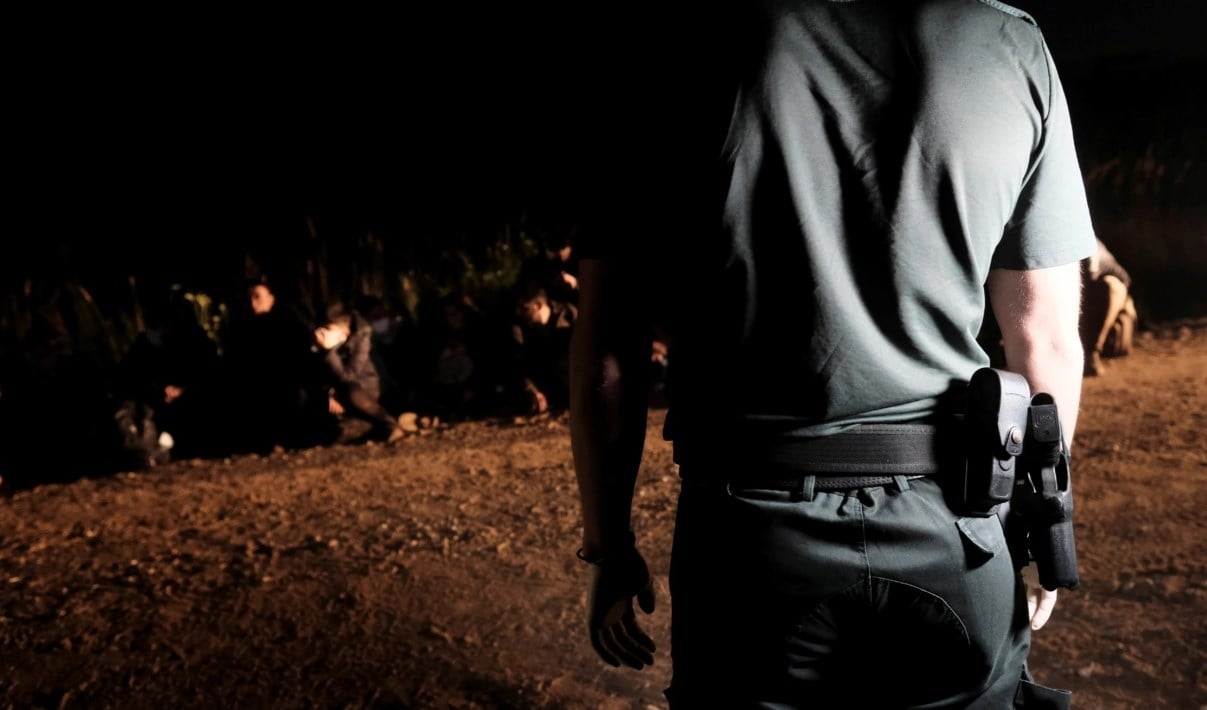Latvia: Refugees, migrants detained, tortured, and forced to leave
An Amnesty International investigation reveals that the Latvian authorities have aggressively turned back refugees and migrants at the country's borders with Belarus.
-

Latvia: Refugees, migrants detained, tortured, and forced to leave.
Recent findings based on an Amnesty International investigation reveal the harsh treatment of migrants and refugees, including children, who have been arbitrarily detained in unknown locations in the Latvian forest and illegally and violently repatriated to Belarus. Many were subjected to taser beatings and electric shocks, especially on their genitals. Some were illegally forced to return to their native nations "voluntarily".
“Latvia has given refugees and migrants a cruel ultimatum: accept to return ‘voluntarily’ to their country, or remain stranded at the border facing detention, unlawful returns, and torture. In some cases, their arbitrary detention at the border may amount to enforced disappearance,” said Eve Geddie, Director of Amnesty International’s European Institutions Office.
“The Latvian authorities have left men, women, and children to fend for themselves in freezing temperatures, often stranded in forests or held in tents. They have violently pushed them back to Belarus, where they have no chance of seeking protection. These actions have nothing to do with border protection and are brazen violations of international and EU law.”
The Polish-Belarusian Border crisis started in late August 2021 when immigrants from the #MiddleEast gathered on the borders of #Poland, Latvia, and Lithuania.#BelarusBorder pic.twitter.com/Me8cIEL680
— Al Mayadeen English (@MayadeenEnglish) November 16, 2021
Latvia declared a state of emergency on August 10, 2021, in response to an increase in the number of persons allegedly encouraged to cross the border by Belarus. In violation of EU and international law, as well as the non-refoulment principle, the emergency measures suspended the right to seek asylum in four border locations and permitted Latvian authorities to return individuals to Belarus.
The Latvian authorities extended the state of emergency several times, extending it now until November 2022, despite the recorded decrease in movements over time.
Dozens of refugees and migrants have been arbitrarily detained in unsanitary tents at the border. A small percentage of people were allowed into Latvia, with the vast majority being placed in detention centers and given limited or no access to asylum processes, legal assistance, or independent oversight.
Amnesty International's study on Latvia follows and supplements earlier findings by Belarus, Poland, and Lithuania on abuses against refugees and migrants.
Violence, arbitrary detention, and possible enforced disappearances
During the period of emergency, Latvian border guards, in collaboration with unnamed "commandos", the army, and the police, subjected people to summary, unlawful, and violent forced returns on several occasions. As a result, Belarusian officials would systematically deport people to Latvia.
People were forced to spend extended amounts of time stuck at the border or in tents set up by officials in remote regions of the forest in between pushbacks. So far, Latvian officials have denied employing tents for anything other than "humanitarian assistance", but Amnesty International's findings demonstrate that tents were tightly guarded sites used to arbitrarily detain refugees and migrants, as well as outposts for illegal returns.
Those who were not confined in tents were often left stranded at the border as winter temperatures dropped to -20 degrees Celsius. Adil, an Iraqi guy who has been in the forest for several months since August 2021, told Amnesty International, “We used to sleep in the forest on the snow. We used to light a fire to get warm, there were wolves and bears.”
Read next: UN accuses Morocco, Spain of 'excessive force' in migrant strategy
Authorities confiscated people's mobile phones at the border and in tents to prevent them from communicating with the outside world. Some families went looking for people who were last seen in Latvia but couldn't be reached by phone. A Latvian NGO revealed that between August and November 2021, they were contacted by relatives of more than 30 missing refugees and migrants.
Holding migrants and refugees in clandestine locations, or leaving them trapped at the border with no access to contact or secure alternatives to being shuttled back and forth between Latvia and Belarus amounts to secret imprisonment and may amount to enforced disappearance.
Forced returns, abuse, and torture
With no meaningful access to asylum under the state of emergency, Latvian officials pushed some people detained at the border into consenting to "voluntarily" return to their countries of origin as the only option to be brought out of the forest. Others were coerced or misled into accepting voluntary returns in detention centers or police stations.
The IOM delegate for Latvia in certain cases rejected information that those transported as part of "voluntary" repatriation processes had not given their real consent to return.
“Latvia, Lithuania, and Poland continue to commit grave abuses, under the pretext of being under a ‘hybrid attack’ from Belarus. As winter approaches and movements at the border have resumed, the state of emergency continues to allow Latvian authorities to unlawfully return people to Belarus. Many more could be exposed to violence, arbitrary detention, and other abuses, with limited or no independent oversight,” said Eve Geddie.
“Latvia’s shameful treatment of people arriving at its borders presents a vital test for European institutions, which must take urgent measures to ensure that Latvia ends the state of emergency and restores the right to asylum across the country for everyone seeking safety, irrespective of their origin or how they crossed the border.”

 5 Min Read
5 Min Read








